Faith of Our Fathers and Mothers: The Wonder of Unity and Nonsectarian Faith
Author: Bobby Valentine | Filed under: Alexander Campbell, Barton W. Stone, Church, Church History, David Lipscomb, Patternism, Restoration History, UnityWhat follows is a series of quotations that highlight a theme that was once prominent among “us.” This theme gets at the very heart of what we where once about, thought we have always struggled to not drift into exclusivity and legalism. Often it is the case that commitment to truth fools us into thinking we have have arrived at “the truth” or that only we have the truth. Print these out and mull over them for a while.
The following quotes are arranged in essentially a chronological sequence to give a historical flow to this post. I believe you will be blessed by our Fathers and Mothers in the faith. Again I encourage you to print this out and come back to it in a few days. Let these words bath the spirit, soothe the mind, and thrill the heart — Bobby Valentine
“I do not pray for these only,
but also for those who believe in me through their word,
that they may all be ONE.” – Jesus
Barton Stone (1804)
“IMPRIMIS. We will, that this body die, be dissolved, and sink into union with the Body of Christ at large; for there is but one Body, and one Spirit, even as we were called into one hope of our calling …
Item. We will, that preachers and people, cultivate a spirit of mutual forbearance; pray more and dispute less . . .” (Barton W. Stone, Last Will and Testament of the Springfield Presbytery,1804,in Historical Documents Advocating Christian Union).
Thomas Campbell (1809)
“Let the ministers of Jesus but embrace this exhortation, put their hand to the work, and encourage the people to go forward upon the firm ground of obvious truth, to unite in the bonds of an entire Christian unity; and who will venture to say that it would not soon be accomplished? . . .
Nothing ought to be inculcated upon Christians as articles of faith; nor required of them as terms of communion, but what is expressly taught and enjoined upon them by the word of God… Division among Christians is a horrid evil, fraught with many evils. It is antichristian … It is antiscriptural . . . It is antinatural” (Thomas Campbell, Declaration and Address, 1809, in Historical Documents Advocating Christian Union).
Alexander Campbell (1825)
(Alexander Campbell, during a long series of articles “A Restoration of the Ancient Order of Things” responded to a Dunkard named Joseph Hostetler {a German Baptist who immersed 3x} who queried him on footwashing, frequency of the Supper, and the Holy Kiss [all of which J. H. believed Campbell to be in error on]. Campbell’s reply shows the heart of the Stone-Campbell Movement like nothing else — Bobby Valentine]). See my article: Coming Together in 1827: The Unknown Union.
“DEAR BROTHER — For such I recognize you, notwithstanding the varieties of opinion
which you express on some topics, on which we might NEVER agree. But if we should not, as not unity of opinion, but unity of faith, is the only true bond of Christian union, I will esteem and love you as I do every man, of whatever name, who believes sincerely that Jesus is the Messiah, and hope in his salvation. And as to the evidence of this belief and hope, I know of none more decisive than an unfeigned obedience, and willingness to submit to the authority of the Great King” (Alexander Campbell, “A Restoration of the Ancient Order of Things, No. XI,” Christian Baptist, 1825, p. 223).
Barton Stone (1835)
“The scriptures will never keep together in union, and fellowship members who have not the spirit of the scriptures, which spirit is love, peace, unity, forbearance, and cheerful obedience. This is the spirit of the great Head of the body. I blush for my fellows, who hold up the Bible as the bond of union yet make their opinions it tests of fellowship; who plead for union of all-Christians; yet refuse fellowship with such as dissent from their notions. Vain men! Their zeal is not according to knowledge, nor is their spirit that of Christ. There is a day not far ahead which will declare it. Such antisectarian sectarians are doing more mischief to the cause, and advancement of truth, the unity of Christians, and the salvation of the world, than all the skeptics in the world. In fact, they make skeptics” (Barton W. Stone, “Remarks,” Christian Messenger, August 1835, p. 180).
Cyrus Bosworth (1838)
(Bosworth was a bishop of the church in Warren Ohio where Walter Scott worshiped. The following are excerpts from his sermon to the “Session School of Preachers” a sort of early preachers convention that met annually. Walter Scott and Alexander Campbell heard the speech and Scott published it — Bobby Valentine).
“There is nothing that Christians can at present do, more directly favorable to the glorification of God’s will, than the healing of divisions, the divisions of the church. This done, and the world would be converted. As to faith, repentance, confession to God, and obedience to Jesus Christ, and the hope of our calling, there would be found more unity of sentiment and oneness of mind among us all, were the matter examined, than at first sight appears to many.
For myself, I believe, from a candid review of the different denominations, and the contents of Holy Scripture, the real and true followers of Christ are ESSENTIALLY one and ever have been ESSENTIALLY ONE” (Cyrus Bosworth, “On Union,” The Evangelist, February 1838, pp. 26-27.)
“We must admit that the Godly of our Protestant brethren are true believers in Christ. . . But there is no oneness in relation to the great portion of matters that engross the attention of modern professors. This is admitted but observe a vast proportion of these matters ARE WHOLLY UNNECESSARY TO UNION… The articles of faith which constitute the bond of Union, are but few in number, and I repeat it, that all true and pious worshippers throughout Protestendom are one in these essentials — Faith, hope, love … Churches may differ on all questions of policy, and yet their loyalty to the King of Glory be wholly sound and sincere” (Cyrus Bosworth, “On Union,” The Evangelist, March 1838, pp. 49ff).
Alexander Campbell (1840)
“Union, love, and social bliss, are only three ways of expressing the same idea. That glory that Christ gave his disciples is union with him … Who that thinks of heaven, of eternal peace and love, can refrain from pleading the union, concert and cooperation of all the sincere followers of the Lamb of God? ON that all the sons and daughters of our Father in heaven were as children of one family, cordially, firmly, and visibly united in one profession . . .
I know that a considerable improvement in the MANNERS of many … would soon expel the demon spirit of party, and establish the indwelling of peace and amity and brotherly kindness… Union among believers is now desired, prayed for, and to some extent, labored for by nearly all who love our Lord. But it is with seeming ill grace that we preach the practicability of a universal union among believers, while we perpetuate dissension among those who not only believe in the same Lord, but practice the same immersion [at this point Campbell is speaking of the Baptists, Bobby V.] Let us then, put our heads, our hearts, our hands together, and establish a union … and we will be armed and supplied. in all the strength of union and love, to persuade and induce our Paedobaptist [i.e those who sprinkle, Bobby V.] friends to abandon all their sectarian practices and unite in the universal compact of Christian love and fellowship” (Alexander Campbell, “Union,” Millennial Harbinger, November 1840, pp. 41-42).
James Challen (1840)
“There is no evil of the present day more to be deprecated, and to be avoided, than that of partyism in the Christian kingdom … We venture to affirm to affirm that no sectarian institution now on earth could give the one-tithe part the reason for separation from the body of Christ, as could the Jewish converts in the original churches, for separation from the Gentile Christians, or the reverse; and yet with what jealousy did the Apostles guard this point, and how sedulously did they labor to preserve the unity of the spirit by the bond of peace . . .
We may differ about things lawful and expedient, whether repentance precedes faith, or faith repentance; about standing or kneeling in prayer; about what we shall call our public speakers, preachers, teachers, or evangelists; or whether we shall have any such persons or not, or need then; or about how we shall raise funds in the congregation, or how much may be needed … We may differ about the NAME Christian and Disciple, as the great patronymic of the citizens of the kingdom of God. We may express ourselves with freedom upon all these subjects, and may honestly differ; but `let all our works be done in love;” and no evil, but good will result” (James Challen, “Partyism,” Millennial Harbinger February 1840, pp. 66-68).
Thomas Campbell (1840-44)
(Thomas Campbell, unpublished letter to Samuel Riddle Jones, Baptist preacher in Ohio. Letter located in the archives of the Disciples of Christ Historical Society, Nashville, TN. The letter is undated but seems to originate between 1840 and 1844 when Campbell died).
“Dear Brother, I am much gratified with the account of your labors, and of their success; especially among our baptist brethren, between whom and us there never should have been any difference: nor indeed would there, had it not been for a few proud partisans in the Redstone Association, of which once we all were members. The reformation which we propose as defined upon the first page of our prospectus, (of which I think I gave you a copy) has for its object Christian Union upon Christian principles; that is the faith & obedience taught by our Lord & his apostles as expressly recorded in the New Testament. Upon this proposition the Baptists cordially received us; and afterwards were excited to reject us, because we would not adopt the Philadelphia Confession. This we could not consistently do; the adoption of any human creed being expressly contrary to our avowed principle upon which they had received us. Nevertheless we have always considered and treated them as our Brethren, and, as far as I am concerned, always hope so to do. I would humbly advise you to treat them with all christian respect as brethren; and, of course, do anything within your power to build up and edify their societies. The first Christian duty to fellow creatures is to love the brethren for Christ’s sake, as He has loved us. And by this shall all know that we are his disciples; if we manifest this love one to another. (John 13: 34, 35).”
Robert Richardson (1847)
“Were we, indeed asked to define theoretically, in terms the most brief and expressive, the reformation of which we urge, we should denominate it — A GENERALIZATION OF CHRISTIANITY. It is in this character that it presents a basis of Christian union. It is in this point of view that it lays aside the differences; the peculiarities; the distinctions, which disunite and mark out the sects; and retains the agreements, the universalities, the identities which secure harmony and peace.” (Robert Richardson, “Reformation, No. IV.” Millennial Harbinger, September 1847, p. 504).
“Christian Union on the Bible alone, has, from the beginning, been the watchword of our religious movement. To effect a union of the pious of all denominations upon this basis was its original and cherished purpose … For it has been our happiness to learn, and to show to others, that the Christian faith is not a belief in doctrines, as has been generally supposed, but that it is simply a TRUSTING IN CHRIST — A PERSONAL reliance upon the Lord Jesus Christ as our Savior. Such was the Christian faith in the beginning . . .
It is not to inferences and abstractions that the homage of the affections, the trust of the soul and the beneficent and self-denying life of the true Christian are devoted. It is a PERSON and not a particular set of doctrines, that are the object of his faith, hope and love … Inferences drawn from facts, are ever to be carefully distinguished from the facts themselves … It is hence Christ in the faith, Christ in the heart; Christ in the life, that constitute genuine orthodoxy” (Robert Richardson, “Union of Christians,” Millennial Harbinger March 1866, pp. 98-101).
Alexander Campbell (1865)
[The very last article published by Alexander Campbell was simply titled “The Gospel” it was published in November 1865. He died in early 1866. — Bobby V.]
Campbell writes of his intense concern for Christology throughout his ministry. He then summarizes seven “sublime facts” of the Gospel the basis of salvation.
1) The Virgin Birth of Jesus
2) The Life of Christ as our perfect example
3) The Death of Christ for our sins
4) The Burial of Christ
5) The Resurrection of Christ
6) The Ascension of Christ
7) The Coronation of Christ
These are the facts of the Gospel.
(Alexander Campbell, “The Gospel,” Millennial Harbinger, November 1865, p. 516).
Isaac Errett
“To persuade men to trust and love and obey a Divine Savior, is the one great end for which we labor in preaching the gospel; assured that if men are right about Christ, Christ will bring them right about everything else. We therefore preach Christ and him crucified. We demand no other faith, in order to baptism and church membership, than the faith of the heart in Jesus as the Christ, the Son of the living God; nor have we any term or bond of fellowship but faith in this Divine Redeemer and obedience to Him. All who trust in the Son of God and obey Him, are our brethren, however wrong they may be about anything else; and those who do not trust in this Divine Savior for salvation and obey his commandments, are not our brethren, however intelligent and excellent they may be besides. Faith in the unequivocal testimonies concerning Jesus -his incarnation, life, teaching, sufferings, death for sin, resurrection, exaltation, and Divine sovereignty and priesthood … are with us, therefore, the bond of Christian fellowship. In judgments merely inferential, we reach conclusions as nearly unanimous as we can; and where we fail, exercise forbearance, in the confidence that God will lead us into final agreement” (Isaac Errett, “Our Position,” in Historical Documents Advocating Christian Union, pp. 299-300.).
David Lipscomb (1875)
“So long as a man really desires to do right, to serve the Lord, to obey His commands, we cannot withdraw from him. We are willing to accept him as a brother, no matter how ignorant he may be, or how far short of the perfect standard his life may fall from his ignorance…We will maintain the truth, press the truth upon him, compromise not one word or iota of that truth, yet forbear with the ignorance, the weakness of our brother who is anxious, but not yet able to see the truth …Why should I not, when I fall so far short of perfect knowledge myself? How do I know that the line beyond which ignorance damns, is behind me, not before me? If I have no forbearance with his ignorance, how can I expect God to forbear with mine? …So long then as a man exhibits a teachable disposition, is willing to hear, to learn and obey the truth of God, I care not how far he may be, how ignorant he is, I am willing to recognize him as a brother.” (David Lipscomb, Gospel Advocate, April 22, 1875).
T. B. Larimore (1898)
“May the Lord grant that I may die before I sow discord among brethren. I have never done so yet — never. I have never introduced, advocated, agitated, said, or done anything that could tend to dissever church, family, or friends. I love the sentiment of the son of America who said, ‘If I have not the power to lift men to the skies, I thank my God that I have not the will to drag angels down. . . If I cannot bless, then let me not live. . .
How can the unity for which Christ and all his faithful followers pray be procured and preserved? . . . we must be ever ready to yield when and where no principle, but only hobby, opinion, or personal preference is involved. Always courteous and kind . . . Abraham was satisfied with the refuse, rocky and rough. So far as earthly possessions and carnal concessions were concerned, his motto seems to have been: ‘Peace at any price’ in preference to strife among brethren.’ . . .
The sinless friend of sinners and voluntary victim of Calvary, pleading, dying on the cross — all this to save the soul; and yet you, claiming to be a Christian, will deliberately doom and drag him [i.e. your brother, B.V.] to eternal death and dread destruction, rather than deny yourself one fleshly gratification, surrender one selfish desire or waive one personal preference. See him suffering on the cross, and then think of that! . . .
Remembering, ‘he that soweth discord among the brethren,’ is “an abomination’ unto God … remembering Bethlehem, Nazareth, and Gethsemane — Christ, Calvary, and the cross; remembering, we are dying dust, that, `man no sooner begins to live than he begins to die … Remembering where nothing more than hobby, opinion, or personal preference is involved; let us ‘walk worthy of the vocation wherewith ye [we] are called, with all lowliness and meekness, and with long-suffering, forbearing one another in love; endeavoring to keep the unity of the Spirit in the bond of peace.” (T.B. Larimore, “Unity,” in Biographies and Sermons, ed. F. D. Srygley [Gospel Advocate, 1898], pp. 35-50).
F. D. Srygley (1900ish)
(Srygley was front page editor of the Gospel Advocate from 1890 to his untimely death in 1900. His editorials were assembled in a book published by the Advocate under the title The New Testament Church — it is a classic]. In the first quotation Srygley is defending himself from a Baptist journal over monopolizing the name “Christian.”).
“The [Baptist] Gleaner is badly muddled when it says, `the name Christian’, as I use it, ’embraces just what the name `Campbellite’ embraces.’ As I use the word, it embraces Paul, Peter, John, and the rest of the apostles, as well as all the disciples we read about in the New Testament … I also use the word to embrace all the disciples who lived on the earth from New Testament times to the preaching of Alexander Campbell. And worst of all for the Gleaner, I use it to embrace all Christians, or disciples of Christ, who have erroneously connected themselves with the Methodists, Baptists, Presbyterians and such like since the beginning of those denominations.” (F.D. Srygley, in the Gospel Advocate, quoted here from New Testament Church, pp. 122-123.).
“The ADVOCATE has never said that “Baptists are not Christians at all,” or that “there are no other Christians in the world than the followers of Alexander Campbell.” The ADVOCATE’S point is that people can be Christians and be saved without being Baptists or followers of Alexander Campbell. Brother Lofton [i.e. of the Baptist Gleaner] admits all this … The ADVOCATE is laboring and praying to get Baptists, Methodists, Campbellites, Presbyterians, Episcopalians and all other denominationalists to … be simply Christians, or disciples of Christ.” (F.D. Srygley, in the Gospel Advocate, quoted here from New Testament Church, p. 173. — there is lots of this stuff in NTC.).
David Lipscomb (1907)
“A sectarian is one who defends everything his party holds or that will help his party, and opposes all that his party opposes. This partisan takes it for granted that everything his party holds is right, and everything the other party holds to be wrong and is to be opposed. Hence the party line defines his faith and teaching. He sees no good in the other party. He sees no wrong in his own party . . .
“A truth lover and seeker always looks into whatever party he comes in contact with, and will first look to see what truth the party holds … The love of truth is a spirit of kindness and love toward all, even to the holder of error. He loves the holder of truth because he receives truth and strength from him” (David Lipscomb, “A Sectarian and a Truth Seeker,” Gospel Advocate June 27, 1907, p. 409).
M. C. Kurfees (1921)
“Replying to my statement that we should `indorse [sic] all the truth taught by the denominations and condemn all the error,’ Brother George [of the Firm Foundation, Bobby V.], says: To do this I will have to condemn the whole business.’ WHAT A FEARFUL STATEMENT! Surely he did not think of its full import. When I was a little boy, a denomination taught me that Jesus died on the cross to save the world; that he was buried; that he arose from the dead; that he ascended to heaven; and that he is the Savior of all who obey him. It taught me that I must obey him if I would be saved, and that water baptism is one of the commandments which he required me to obey; but it also taught me that sprinkling was baptism, and I submitted to it. Later I learned that it mistaught me in this last item… and I turned as far as I saw them, into which I had been led, and did what the New Testament required; but I did not “condemn” the whole business,” and thus repudiate that Jesus died on the cross to save the world … all these things were taught me by a “sect church.” Surely brother George does not mean to teach that I should “condemn the whole business,” yet that is exactly what he says. On the contrary, I repeat, let us “indorse [sic] all the truth taught by the denominations,” or by anybody else . . .” (M. C. Kurfees, “Where Are the People of God?” Gospel Advocate, January 20, 1921, pp. 67-68).
F. G. Allen (1920s)
“To deny that there are Christians apart from those who stand identified with us in our work would make our plea for Christian union both meaningless and senseless. While we believe that many identified with the denominations are Christians, they have taken on much that is neither Christianity nor any part of it; and this we labor to have them put away. . . . It will be seen, therefore, that while we claim to be Christians only, WE DO NOT CLAIM TO BE THE ONLY CHRISTIANS. Our principles will not allow us to be anything else; and we strive to have others satisfied with the same. Hence the charge so often made, that we arrogate to ourselves alone the name Christian, is false.” (F. G. Allen, “Our Strengths and Our Weakness,” a sermon in New Testament Christianity, vol. 2, ed. by Z. T. Sweeney, p. 245).
N. B. Hardeman (1928)
“I have never been so egotistic as to say that my brethren with whom I commune on the first day of the week are the ONLY Christians on this earth. I never said that in my life. I do make the claim that we are Christians ONLY. But there is a vast difference between that expression and the one formerly made… (N. B. Hardeman, “Unity [No. 1], Tabernacle Sermons, vol. 3, p. 125. The sermon was preached in 1928.).
G. C. Brewer (1929)
“Our brethren did not make the distinctions that we make. They had a much better grasp upon the idea of a non-sectarian church than most of us have. We are far more sectarian than they were. (I am prepared to prove this any day.) The plain fact is that they were better educated, better informed, better balanced men, as a rule, than we are today. The cause of this is easily seen. We have ceased to emphasize broad culture and profound Bible knowledge and have exalted men into the positions of ‘big preachers’ simply because they know a few first principle sermons and ‘skin’ the sects, when they are wholly deficient in many other respects. Then jealousy and a sectarian spirit causes these ‘big preachers’ and their admirers to suspect and to disfellowship any man who gets into the field where they are not acquainted … Think it over, brethren.” (G. C. Brewer, “More Criticism, Gospel Advocate, March 14, 1929, p. 245).
[In the middle of the “premillennial” controversy Brewer spoke on Unity at the ACC lectures and makes a traditional appeal to the Seven Ones in Ephesians 4 as the basis of unity — Bobby Valentine]
“ONES. Seven is a prominent number in the Scriptures. It is by some people supposed to be a magic number; to possess a, charm. We do not attach any such idea to that number but there seems to be no doubt that the number seven is symbolic. It represents something that is complete; a whole, a cycle, a perfect work, a finished mystery. Hence Paul shows us the perfection of unity and subsists in the divine arrangement by enumerating the seven ones that compose the Spirit’s plan. There is One body … There is One Hope … There is One Lord … There is One Faith … There is one Baptism … There is one God . .. What a tremendous appeal this is for Christians to be united. How can we imagine to please God or ever expect to see Him in peace if we foment factions, sanction divisions or perpetuate parties? …
Have we nevertheless divided into factions and contending sects . . . Even we it is said, fight and devour each other and split and divide over the most insignificant things. It is sad to have to admit that there is all too much truth in this objection …
Of course, those who are involved in a division always claim that some vital point is in question… Frequently however, it is only our opinion or our judgment that has been disregarded and not the word of God … Even if he [i.e. a brother, B.V.] teaches error, this error would have to be very heinous if it is as great a sin as the sin of division…
This point may have to do with the state of the dead, or the question about the millennium or what will become of the heathen … or some method of getting our money together … or about educating our children … but surely no truth can be as vital as union with God and therefore union with all the children of God. Nothing should separate us from each other unless it is something that separates us from God.” (G. C. Brewer, “A Plea for Unity,” Abilene Christian College Lectures, 1934, pp. 169f).
OBSERVATIONS
These are just a few illustrations of that great foundational theme in the Stone-Campbell Movement — a UNITY movement. These quotations could be multiplied into the hundreds rather easily. I have posted these at the present time because it is at this moment in our history that we need the perspective of our Fathers and Mothers in the Faith, perhaps more than any other time. There are many running up the flag of division, many building walls and burning bridges — over things that our Fathers and Mothers found to be less than righteous grounds for division. Ask these hard questions:
1) Do we have a zeal for the unity of the Body? Do we recognize the already existing spiritual unity of the Church? Do we pray for that visible unity daily — ever?
2) What is a key theme that runs through all of the above quotations from 1804 to 1928? Where our Fathers wrong in saying there are only a “few” essentials for unity?
3) Is it possible that we have succumbed to the very partyism that our Fathers and Mothers in the faith was running from? Are we intolerant? Do make anything less than “obvious” truth a test of fellowship? Are focused upon Christ in the way Campbell, Richardson and Errett advocated in their quotes? If not perhaps this is a clue to the tension that now exists in the “brotherhood.”
The sad truth is that many times throughout our history we have not sounded these nonsectarian notes but the reality of why were exist as a people is expressed here.
Read and ponder. Ours is a glorious heritage of UNITY within DIVERSITY.
Shalom,
Bobby Valentine
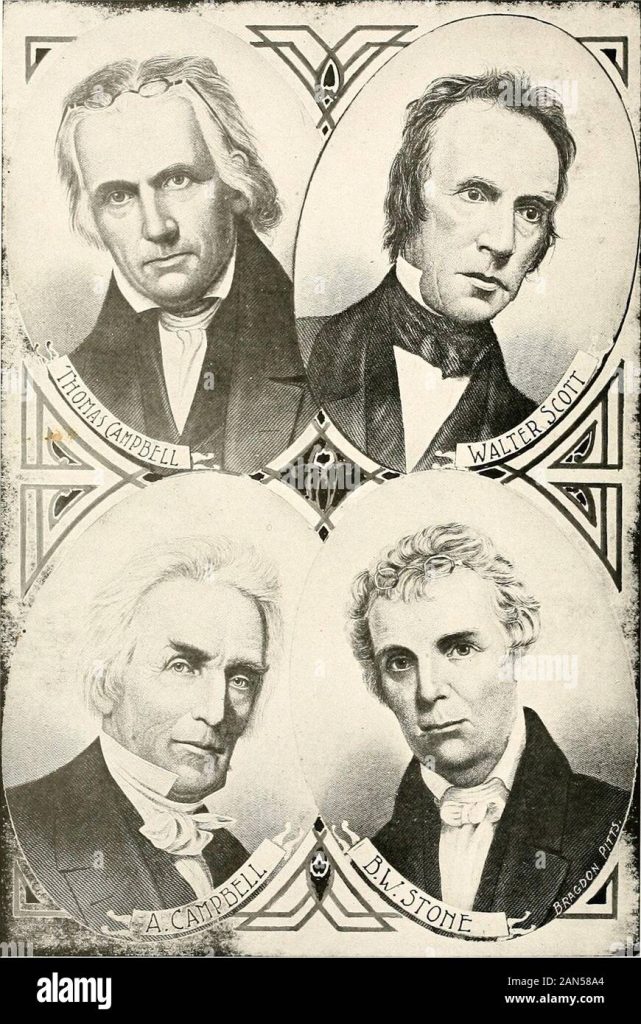
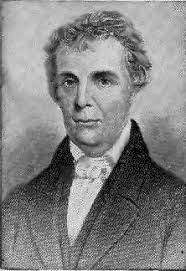

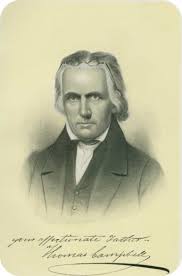
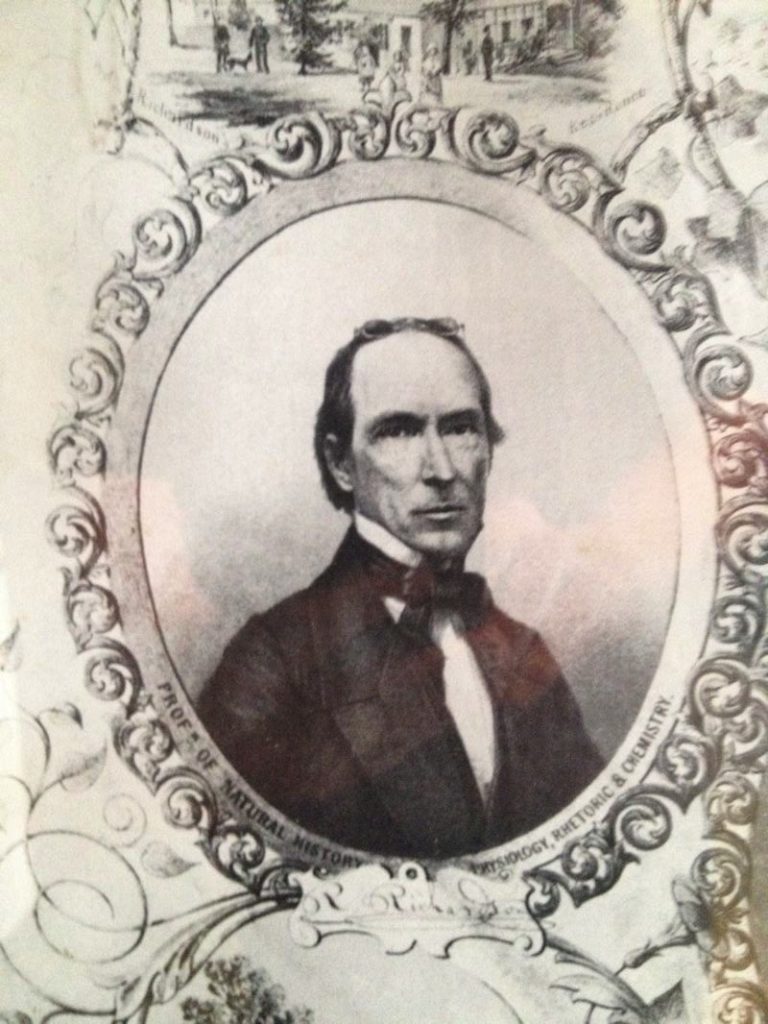


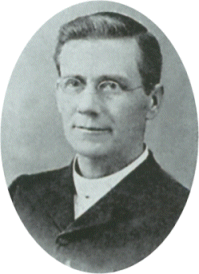
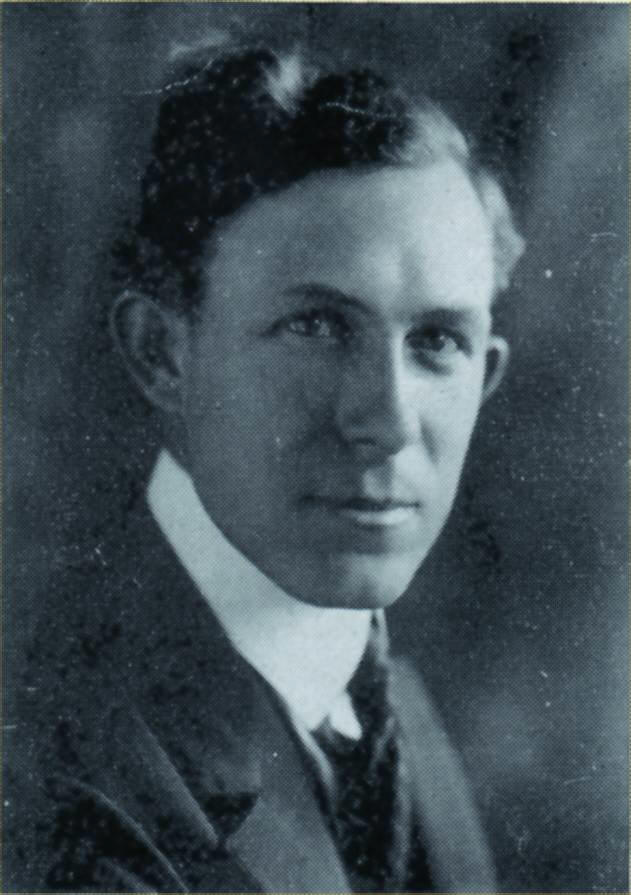
Leave a Reply